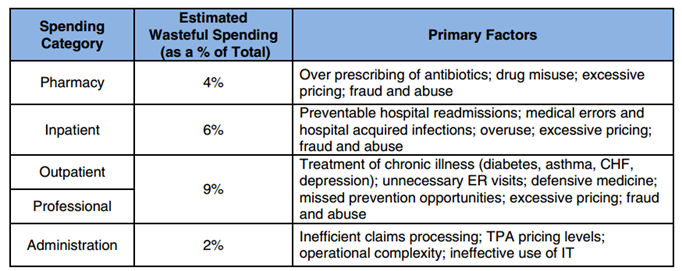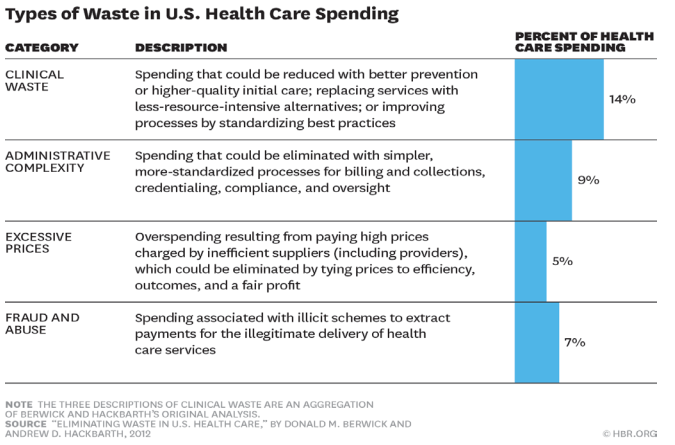| Editor’s Note: Independent review services improve workflow and lower staffing expenses. CLICK HERE for our white paper on the leveraging the value of Peer Reviews for organizational improvements. |
Vera Gruessner, on December 23, 2016, of healthpayerintelligence.com wrote a great piece on American Health Policy Institute’s released a report describing its work with VBID (Medicare Advantage Value-Based Insurance Design Model) Health. Payers reduce wasteful spending in a number of common sense ways.
The American Health Policy Institute (AHPI) seeks to address member issues around the cost of healthcare in the United States, and specifically how large employers can maximize the value of their healthcare purchasing dollars.
The report identified, “Administrative Efficiency” as a key component to target. “A significant portion of wasteful spending is the result of operational inefficiencies, excessive pricing, fraud and abuse, and other factors. We recommend that large employers take advantage of their combined purchasing power and economies of scale. Where possible, we would encourage developing shared services, group purchasing (e.g., TPA, Centers of Excellence), adoption of best practices, and other benefits of scale.”
“The American Health Policy Institute released a report describing its work with VBID (Medicare Advantage Value-Based Insurance Design Model) Health that found unnecessary and wasteful spending account for 20 percent of total funding or about $2 billion among 35 large employers. Prior studies have found that wasteful spending could be responsible for as much as 30 or 40 percent of total healthcare costs.
Data analysis and quality reporting play a role in reducing wasteful spending. The report advises stakeholders to create score cards with claims data to show the spending areas that have been successful and other services that need improvement.” – healthpayerintelligence.com
Payers Reduce Wasteful Spending
AHPI found the administrative component of healthcare spending is complex and can be inefficient and expensive. Three areas under direct control of payers, were addressed in the results. Payers Reduce Wasteful Spending
- Inefficient claims processing represented 7% (PWC).
- Staff turnover, operational complexity, ineffective use of information technology representing 2.9% (PWC).
- Administrative complexity, 8.9% of total spending (HBR).
A similar Harvard Business Review study concluded that 35% of total spending is estimated to be wasteful, divided into four major categories.
Independent review services improve workflow and lower staffing expenses. CLICK HERE for our white paper on the leveraging the value of Peer Reviews for organizational improvements.
- Harvard Business Review (HBR), https://hbr.org/2015/10/how-the-u-s-can-reduce-waste-in-health-care-spending-by-1-trillion, October 13, 2015.
- Pricewaterhouse Coopers “The Price of Excess” (PWC)


